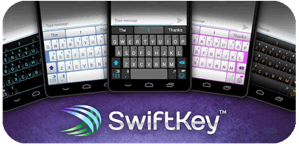 In our increasingly connected world, people are constantly generating new data about themselves. While social networks collect a record of one’s feelings, sensors that measure sleep patterns and Wi-Fi-enabled scales can keep track of vital statistics. To tech experts, all this seemingly vain information may actually lead to the next great innovation: predictive computing. Soon enough our gadgets will know us so well that they won’t just store our to-do lists, they might actually write the lists themselves.
In our increasingly connected world, people are constantly generating new data about themselves. While social networks collect a record of one’s feelings, sensors that measure sleep patterns and Wi-Fi-enabled scales can keep track of vital statistics. To tech experts, all this seemingly vain information may actually lead to the next great innovation: predictive computing. Soon enough our gadgets will know us so well that they won’t just store our to-do lists, they might actually write the lists themselves.
Many smartphone users have already dealt with one of predictive computing’s first services, but chances are they don’t like it that much. That’s because the auto-correct feature on most mobile devices ends up creating just as many typographical errors as it prevents. However, for $3.99 Android users can get an app that takes the technology to the next level. Called SwiftKey, the app gains access to your texts, email and Twitter in order to learn the ways you communicate. Not only does it learn your writing style, it also can track exactly when you make typos and adjust the keyboard accordingly. For instance, if you keep hitting the “R” key when you meant to hit “E”, the app will automatically reshape the keyboard to better accommodate your typing.
The iPad app MindMeld seems even more futuristic. The app listens in on your conversation and displays information based on what you’re talking about. So if someone on your conference call starts talking about sales in Southern California, the app will throw photos, maps and other data about the region onto the screen. The more detailed context offered by the speaker, the more specific the information becomes. With so many opportunities available with this new technology, industry giants Google and Apple are racing to acquire as many predictive computing startups as possible. Apple recently splashed $40 million on Cue, a company that created an intelligent agent to manage your daily schedule. Still, some may see these services as just another set of intrusive and overreaching measures used to ensnare our personal data. Only time will tell if advances like predictive computing will truly shape our future or if consumer backlash will prevent them from getting off the ground.
Questions:
- Do you think consumers will embrace “predictive computing”?
- Could we come to the point of relying too much on computers?
Source: Om Malik, “The Coming Era of Magical Computing,” Fast Company, December 2013/January 2014. Photo by SwiftKey.
